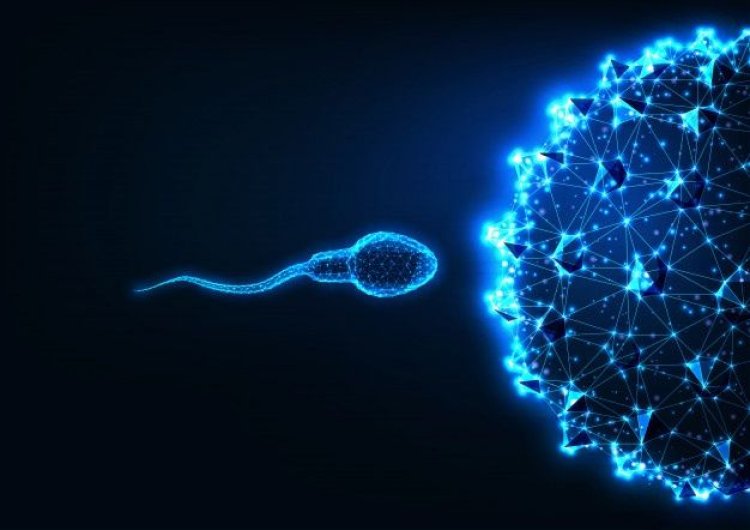Or register with email
Join our subscribers list to get the latest news, updates and special offers directly in your inbox


Hydroceles are a common medical condition, particularly among men, that involve the accumulation of fluid in the scrotum. While hydroceles are often painless and benign, they can cause discomfort, swelling, and lead to concerns about their impact on fertility. For couples seeking treatment at the best fertility clinic in Bangalore, understanding hydroceles and their potential implications on reproductive health is crucial.
In this article, we will explore what hydroceles are, their symptoms, how they may affect fertility, and when to seek medical advice from a fertility clinic.
A hydrocele is a fluid-filled sac that develops around a testicle, causing swelling in the scrotum. Hydroceles can occur at birth (congenital hydroceles) or develop later in life (acquired hydroceles). In most cases, hydroceles are not painful and do not directly affect the testicles themselves. However, the swelling can cause discomfort or lead to concern about potential health issues, including fertility problems.
There are two main types of hydroceles:
Hydroceles often present with few or no symptoms other than swelling in the scrotum. The swelling is typically painless but may cause a feeling of heaviness or discomfort, especially as the day goes on. Common signs of a hydrocele include:
While hydroceles are usually harmless, men experiencing significant swelling or discomfort should seek a medical evaluation to rule out other conditions, such as testicular torsion, infections, or hernias.
One of the most common questions men have when diagnosed with a hydrocele is whether it can impact fertility. The short answer is that in most cases, hydroceles do not directly cause infertility. However, there are certain scenarios where hydroceles may indirectly affect reproductive health.
The testicles need to maintain a temperature slightly lower than the rest of the body for optimal sperm production. The fluid accumulation caused by a hydrocele can potentially interfere with the testicles' ability to regulate temperature. Prolonged exposure to higher temperatures could reduce sperm quality and motility, which may negatively impact fertility.
In some cases, hydroceles develop as a result of an underlying condition that could affect fertility. For instance, infections, inflammation, or trauma to the testicles can lead to the formation of a hydrocele. These underlying conditions, rather than the hydrocele itself, may be the cause of reduced sperm production or quality.
At the best fertility clinic in Bangalore, doctors will evaluate whether the hydrocele is a sign of a more serious issue, such as infection, that could potentially impact fertility.
Hydroceles are sometimes found alongside varicoceles, which are enlarged veins in the scrotum. Varicoceles can impair blood flow and raise the temperature of the testicles, leading to poor sperm quality and reduced fertility. If a man has both hydrocele and varicocele, fertility may be compromised.
If a hydrocele requires surgical correction, such as a procedure called hydrocelectomy, there is a small risk that the surgery could damage the structures of the scrotum, including the testicles and spermatic cords. However, modern surgical techniques are generally safe, and complications are rare. Any potential risks should be discussed with a specialist at the best fertility clinic in Bangalore.
Hydroceles are typically diagnosed through a physical examination, where the doctor will check for swelling and tenderness in the scrotum. A non-invasive test called transillumination, where light is passed through the scrotum, can help distinguish a hydrocele from other scrotal masses.
In some cases, further testing such as an ultrasound may be needed to confirm the diagnosis and rule out other conditions like hernias or testicular tumors.
Watchful Waiting: In infants and young children, hydroceles often resolve on their own within the first year of life. For adults with small, asymptomatic hydroceles, watchful waiting may also be recommended as long as the condition does not cause discomfort or affect daily activities.
Hydrocelectomy: This surgical procedure is the most common treatment for hydroceles that do not resolve on their own or cause significant discomfort. During a hydrocelectomy, the fluid-filled sac is removed or drained, and the passage of fluid is blocked. This procedure is usually performed under local or general anesthesia and has a low risk of complications.
Aspiration and Sclerotherapy: In some cases, hydroceles can be treated with needle aspiration, where the fluid is drained from the sac. Sclerotherapy involves injecting a solution into the sac to prevent fluid from re-accumulating. This treatment is less invasive than surgery, but hydroceles are more likely to recur with aspiration and sclerotherapy.
If fertility is a concern, it's important to discuss the risks and benefits of each treatment option with a doctor at the best fertility clinic in Bangalore. The doctor can help determine the best course of action based on the severity of the hydrocele and its potential impact on reproductive health.
For men concerned about their fertility, early diagnosis and treatment of hydroceles are crucial. While hydroceles themselves may not cause infertility, they can be indicative of underlying conditions that could affect reproductive health. Addressing these issues in a timely manner can improve the chances of successful conception.
Here are some tips for men diagnosed with hydroceles who are concerned about their fertility:
While hydroceles are generally benign and painless, they can raise concerns about fertility, especially for men seeking treatment at the best fertility clinic in Bangalore. In most cases, hydroceles do not directly cause infertility, but they may be associated with underlying conditions that can impact sperm quality and reproductive health. By addressing any concerns early, seeking expert medical advice, and maintaining a healthy lifestyle, men can protect their fertility and improve their chances of conception.
If you're concerned about how hydroceles may be affecting your fertility, consider consulting a specialist at a leading fertility clinic in Bangalore to discuss your options for diagnosis and treatment.
Uttam Kendre May 23, 2024 12
mayuraj Jeweller Mar 16, 2023 19
SEO team Jun 1, 2024 410
sonu May 22, 2024 279
Kuda Liar Jun 15, 2024 279
pusaanindia Sep 19, 2023 228
nitin36 Sep 19, 2023 266
admin Mar 24, 2023 707
olivia-66bf3ccf65cfe Sep 6, 2024 3
Dr. Rajiv Bajaj Sep 6, 2024 7
LASIK Treatment in Delhi: The Ultimate Solution for Clear Vision by Dr. Rajiv Bajaj
Manoj aggarwal Sep 5, 2024 14
Discover how Laptops & Printers toys from MyFirsToys inspire creative play and learning...
nekor jass Aug 27, 2024 10
Veeloslim er et naturligt produkt uden bivirkninger. Læs mere om svindel, pris måling...
gluceasupplement Aug 13, 2024 17
Glucea - Glucea has worked wonders for men and women from their 30s to their 70s....